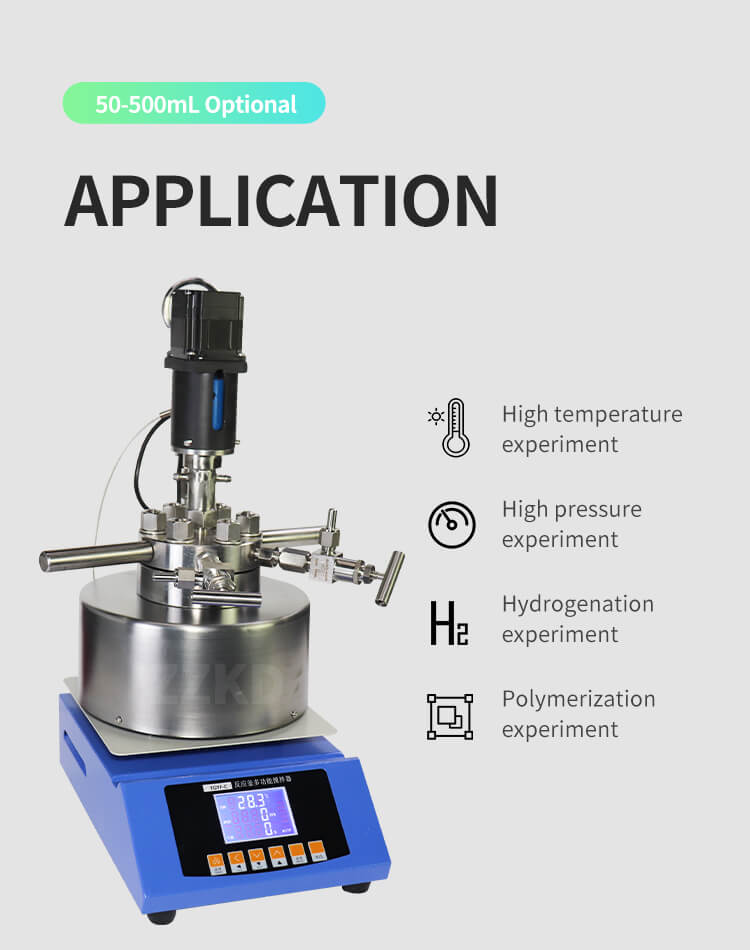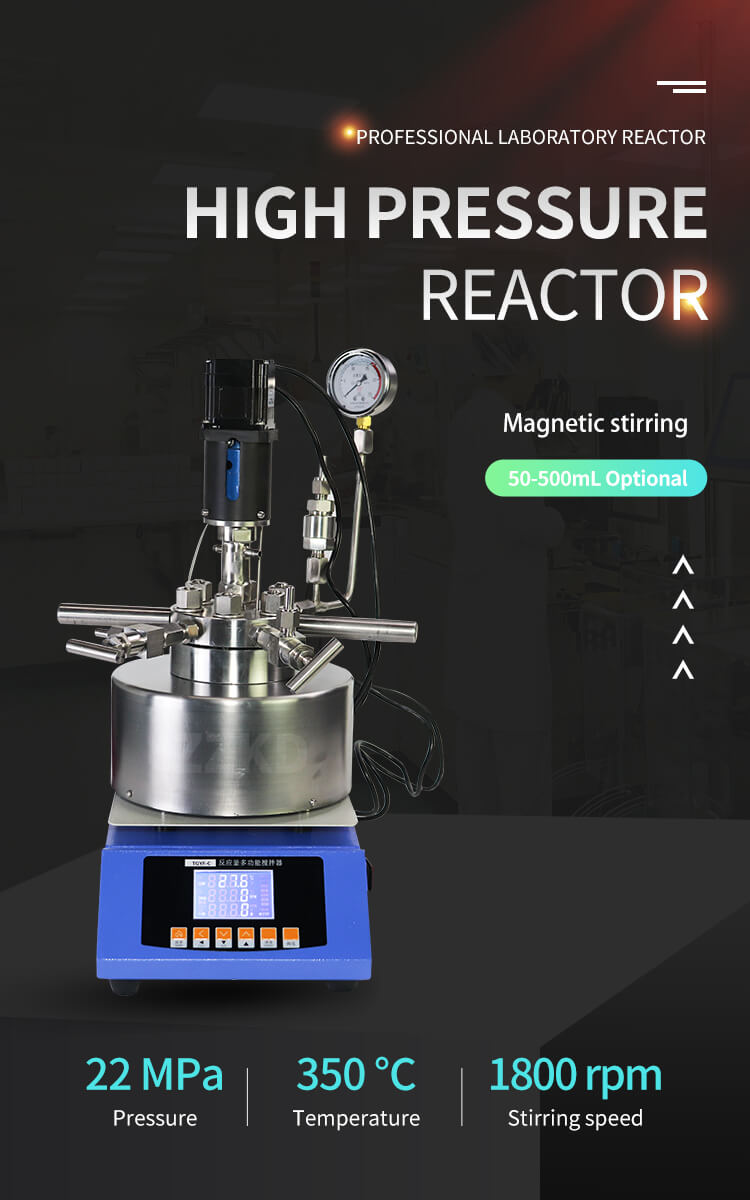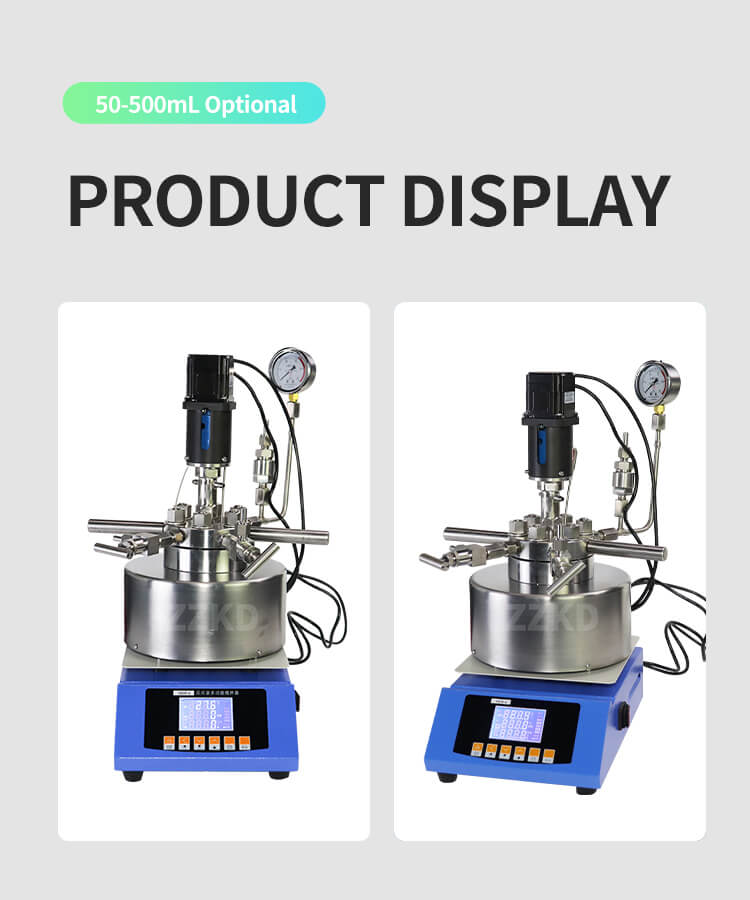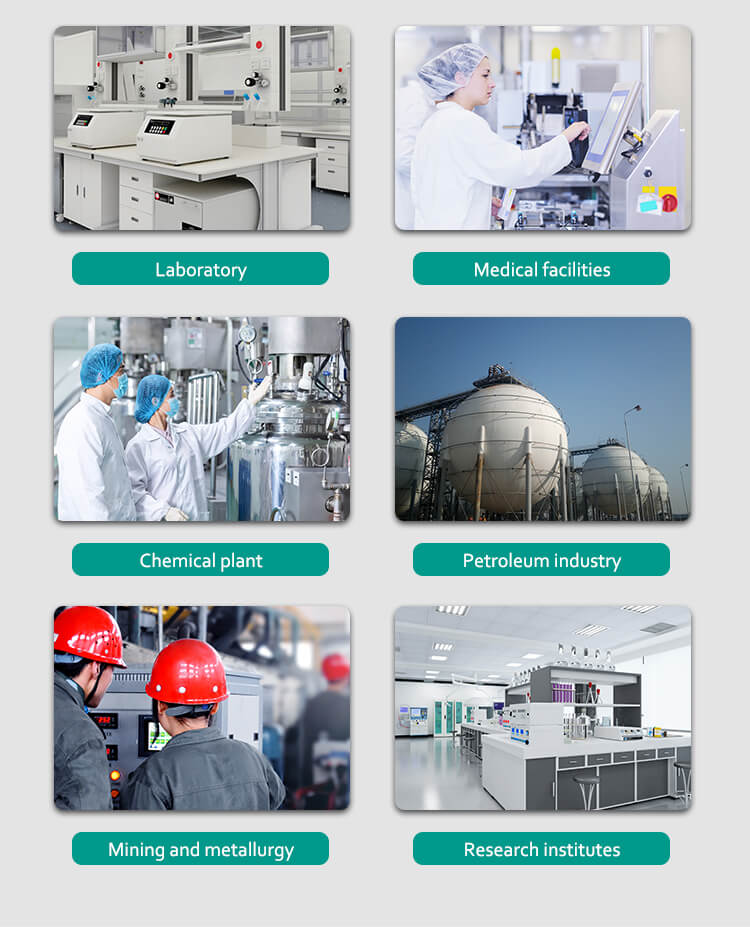In today's world of scientific advancements, high pressure chemical reactors have emerged as an essential tool for researchers and industries alike. These reactors are designed to handle reactions that require high pressures, providing a controlled environment for chemical processes to take place.

One of the main advantages of a high pressure chemical reactor is its ability to increase the yield of certain reactions. By applying high pressure, it becomes possible to shift the equilibrium of a reaction, favoring the desired product formation. This opens up new possibilities for the synthesis of complex molecules and compounds.

High pressure reactors are commonly used in various industries, such as pharmaceuticals, petrochemicals, and materials science. They enable scientists to explore new reaction pathways, design efficient catalysts, and optimize reaction conditions.
These reactors are typically constructed from robust and durable materials that can withstand high pressures. The vessel is designed to contain the reactants safely while maintaining the desired pressure. Specialized seals and gaskets are employed to prevent any leaks during operation.

Controlling factors such as temperature, pressure, and reaction time is crucial in high pressure chemical reactors. Advanced monitoring and automation systems are often incorporated to ensure precise control and safety.
In addition to their importance in industrial applications, high pressure chemical reactors play a vital role in research laboratories. They facilitate fundamental studies on various chemical processes, allowing scientists to better understand reaction mechanisms and kinetics.
The continuous development of high pressure chemical reactors is paving the way for innovative solutions in fields like green chemistry, hydrogenation, and polymerization. Researchers are exploring new materials and novel reactor designs to further enhance their performance and efficiency.

In conclusion, the high pressure chemical reactor is a powerful tool that enables scientists and industries to achieve new frontiers in chemistry. With their ability to handle high pressures, these reactors contribute significantly to the advancement of chemical synthesis and understanding reaction mechanisms.





